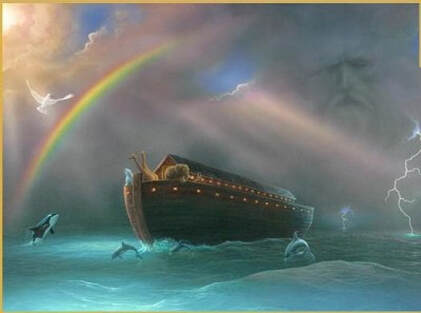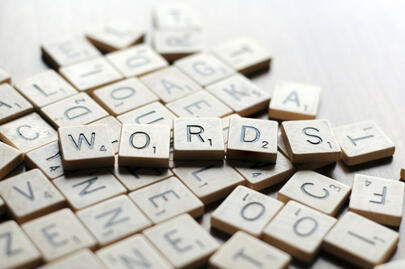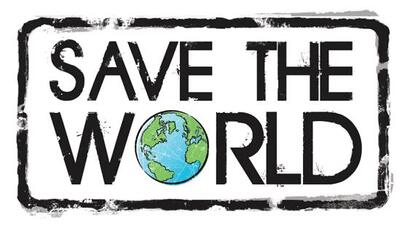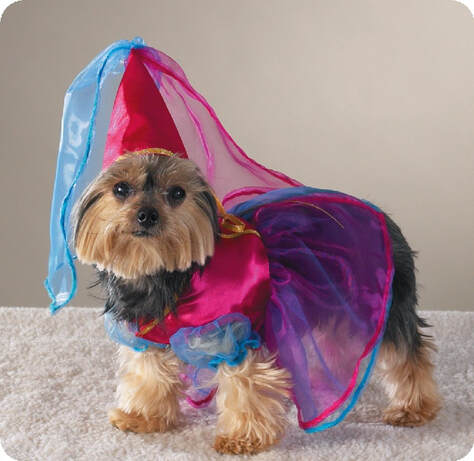all of the selves we Have ever been
 With minds full and all keyed up about the state of the world and the coming presidential election, my friends and I compare notes about our studied efforts to find peace of mind. It quickly becomes apparent that we are not very good at it. The strategies all look and sound so easy on YouTube and yet there is something in each of us that resists. I sit for meditation, and Om… my mind thinks about what I am going to do next or maybe eat next. I save my mantras for driving in urban traffic where the anarchists are equipped with wheels and probably have guns under their seats. I silently chant to the speeding driver behind me who is also on his phone: “Please don’t hit me. Please don’t hit me.” Or beg the traffic lights: “Please stay green, stay green…” I call a friend to see if she is doing any better. “How was your meditation class last night?” “I don’t know, I tuned in and fell asleep.” This is a woman who has mastered napping. She could fall asleep during child birth, but it’s not a strategy that will help us in rush hour traffic or save us from the detention camps to which all Democratic voters will be sent should the election go a certain way. I check in with another friend who is taking an eight-week Tai Chi class. I find no wisdom here. She is miserable and now dreads the dawn of each new morning. Being the super-responsible sort, she pushes herself to be tuned in by 8 AM and to attend every class even though it is virtual. Old fears of being denied graduation due to poor attendance haunt her. For this woman who is accustomed to getting things done, the slow motion is pure torture. She is reminded of having been a cheerleader in her youth: “This is like doing all of the cheers in slow motion.” She finds her peace of mind when the program ends: “Thank God that’s over,” she says. I make a mental note that God does answer prayers, and I wonder where mine are on His to-do list for I am pretty faithful about prayer which is mostly me begging and pleading along with giving God a list of people and things that need fixed, like He doesn’t already know… My friends and I are no better at mindfulness practices than we are at sky diving, but we are better practiced. There is a healing that comes through our failures. They become rich fodder for conversations that provide us with plenty of laughter. We give voices to what troubles us and release it in howls and giggles. Sometimes we laugh until we can no longer speak which is probably the answer to someone else’s prayers. Drained of our stress, we carry on—at least until the next news bulletin and the next YouTube video. Perhaps our true natures are revealed in the self-preservation methods we choose: rest and disconnect, ask questions and seek answers, beg and plead even, get things done and cheer on others. Laugh until we feel better. Let’s face it--we need to look after ourselves. We need to get out the rubbish we ingest before it festers inside us leading us to the very behaviors we despise. So, back to begging and pleading… My prayer today is that there are enough of us who are keyed up about the state of the world and not just badly practicing mindfulness but also trying to live the definition of mindful: watchful, aware, careful, attentive, sensible, and thoughtful. I say let’s make that a ballot requirement. Om…
0 Comments
 My son calls to tell me that he heard from his boss who is traveling in Libya. Through sobs, Sam’s boss reported that he had awakened in Libya one morning this week to the inconceivable reality that entire units of his extended family had been washed out to sea. Gone. Presumed dead. This unimaginable horror is on my mind as I run an errand in my own safe and manicured community. Reaching for the door to a shop, I glance across the street to a schoolyard. From a brilliant blue sky, the morning sun reflects off the shiny, red, plastic tube-slide creating a spotlight for a gaggle of little boys in their colorful t-shirts as they race onto the playground. Other doors burst open and grade schoolers come from all directions flooding the field with bodies that are running, jumping, swinging, and climbing. Suddenly, the world is alive and the air is full of a joyful noise. For a moment, there are no children buried beneath rubble in Morocco or washed out to sea in Libya, no sobbing, inconsolable parents. And in this moment I feel like Noah after the rain. The entire playground performance seems orchestrated by God, a colorful rainbow to remind me that while I might be disheartened, He is not yet discouraged of man. There is so much that we take for granted: that the planet is inexhaustible, that the ground beneath our feet is stable, that we can hold back the rain with our human minds and engineering. Thankfully, these sweet playground nymphs are not yet burdened by the thoughts and fears of all that can go wrong. I marvel at their continued faith in grown-ups. I make a wish on this playground rainbow that all adults can be worthy of this faith, that no child anywhere will be deprived of hope, and that their lives will be such that any loss of health, energy, or joy can be restored simply by taking a nap. And I pray that these children will inspire us to do a better job of caring for this world, this life, this beauty, all this wonder. None of us can do it alone. The world was saved by going in pairs. Let us begin anew. Send out the dove.  This is a week of reckoning, not only in Georgia, or the U.S. House of Representatives, or the Senate, or even the White House. This is a time of reckoning for the American people, a day to ask, “What is happening to us?” All of us. When I was a child, there was a saying, “Sticks and stones may break my bones, but words will never hurt me,” but, of course, some words did hurt. That saying was a child’s feeble response to bullying. We also tried the “I’m rubber, you’re glue; everything bounces off me and sticks to you” defense. It was something a victim might say in the moment, but, again, the words didn’t bounce; they stung. Nothing stuck to the bully, however; his damaged heart was coated in Teflon. Later, when I was a teenager opening my eyes to a wider world and to history, I studied the Holocaust in high school. I watched films and read books. How, I wondered, how could such a thing happen? The horrors were so grave, human behavior so atrocious. I could not grasp how an average citizen could become so monstrous in the treatment of neighbors, friends, and relatives. How could a leader convince an average person, a previously law-abiding person, to abandon his conscience and turn on his countrymen? As an adult social worker and therapist, I had the privilege of meeting European and Russian survivors of the Holocaust. The survivors I met were remarkable people. All of them shared how they once found the rumors of atrocities in their homelands to be unfathomable. All of them had believed that if they kept their heads down and obeyed the rules, did not draw attention to themselves, did what was asked, then right and decency would triumph. Except that it didn’t. Evil prevailed. After years of torment, the survivors were grateful to the Americans who saved them. When World War II ended, Americans settled on a belief that Hitler’s brand of evil was an anomaly, a thing of the past, “it can’t happen here” people said. In the weeks since the United States 2020 presidential election, I have felt paralyzed by the realization that it is happening here, here in the United States of America, the country that once saved the world for democracy. Prior to yesterday’s riots in the Capitol, I fretted over the bloodshed I feared was coming. My friends were more optimistic believing the worst was over. My fears this week have been informed by years of observation and study. There is a growing percentage of the population with a troubling personality type characterized by rigid thinking, an inability to consider opposing points of view, limited capacity for insight, impulsive behavior and poor self-regulation, people with only two settings--adulation or retaliation. As the need for adulation grows, the degree of retaliation escalates. These are people who become intoxicated by demeaning others. They become incapable of empathy. When psychiatrists and mental health professionals studied the imprisoned Nazi guards and elites awaiting trial at Nuremberg, the professionals determined that the guards and Nazi officials were incapable of empathy. That missing ingredient made all manner of horror possible--no shame, no regrets. No amount of facts, no album of photos, no film footage, no eyewitness report could get these prisoners to re-evaluate their actions. Their minds were rigid, their hearts impenetrable. They were made of Teflon and rubber—everything bounced off and stuck to someone else. Today, Twitter has replaced the millions of propaganda-filled leaflets that the Nazi’s once dropped from the sky like snow—the alternative news of that day. Social media has become a place where people can demean and destroy others, turn on their neighbors, and delight in mob rule. People are seduced by gossip and alternative facts on this contagious and intoxicating medium. Without direct eye contact, people lose the capacity to experience the emotional consequences of their words and actions. A light keystroke doesn’t have the same hard impact of throwing a punch to someone’s head, but it can have the same or worse effect. We are all complicit when we view, and share, and like, and tweet, and post these troubling words. It is not just the social media companies that need to police their platforms. Each of us needs to police ourselves. What goes on privately in the windmills of a person’s mind needs to stay there until properly evaluated. We need to consider the people we elevate to stardom and leadership. Social media has made it possible for people to become wealthy and powerful simply by being outrageous, liked, and viewed. At a time when educated, experienced experts are being denigrated, radio shock-jocks, and porn stars are sought for their opinions because they are “influencers” and have followers. We glue ourselves to television shows and celebrities that model degrading behavior in the kitchen, in the boardroom, or in the marriage proposal game. How did this become entertainment? What’s next? Humans being torn apart by hungry lions while we sit in the stands laughing and drinking beer? We are habituating ourselves to images, words, and behaviors that are re-shaping the human psyche and destroying our ability to feel empathy for others. People who complain about demeaning behavior on the team, in the workplace, or in social circles are often told to “let it go,” or “toughen up,” or “there’s nothing you can do.” Our parents once advised us to keep our hands and our words to ourselves. The defense, “she started it” was not acceptable. We were expected to find an exit ramp to the high road or seek appropriate help. Words do hurt. Words can be weapons. That is one of the reasons the pen is mightier than the sword. Words can cut and tear leading to a loss of limbs, a loss of life, bloodshed. Some people can shrug off the hateful words of another. Others seethe with anger and hurt and eventually use all of that negative emotion as rocket fuel on a galactic mission of destruction. We instruct preschoolers to use their words, but there is more to it than that. Choose your words before you use them. Speak truth to power and truth to evil. Avoid the temptation to join in the chatter, to like, to post, to tweet…if doing so demeans your own character or that of someone else. Hold leaders accountable for the character revealed by their words. Even a policy genius is not a worthy candidate if he or she has no conscience. If you would not want their worst behavior directed at you, don’t elect, pick, or hire them to be responsible for others. I hear from people that the situation is hopeless…”Oh, well,” they say. “There’s nothing you can do,” they say. “It’s hopeless,” they say. Hopeless cannot be the last word. The hopeless cannot have the last word. There are other words. Better words. If you are lost for words, start with these: Love your neighbor.  Most of us never imagined that we would be called upon to help save the world. Saving the word is the work of superheroes in distinctive, trademarked costumes, of servicemen and women in camouflage, or first responders wearing helmets and holsters. But there are no uniforms or badges for this call of duty. We do not fight fire with fire. We fight tiny with tiny. A microscopic organism has set the world aflame. Now, it is all about the significance of small things. The things we once took for granted are now our strongest weapons. Small acts of kindness are the droplets joining to become the rushing force of water through a fire hose. We de-rail the movement of the enemy by keeping our hands from our faces, washing those hands, and staying home. Mouth-to-mouth resuscitation has become a short phone call to a lonely neighbor, a call that can be lifesaving. We understand rationing and are grateful for small amounts—a couple of bucks set aside in the cookie jar, a few rolls of toilet paper in the closet, a palm-sized bottle of hand-sanitizer in a purse, a single, old bandanna covering a mouth. Though all of my needs are met, I admit to moments of battle fatigue. In those twitchy moments of impatience, I reflect on the past world wars and remember the veterans and Holocaust survivors I have known. They remind me that the world is not saved by superheroes, and small is not the opposite of greatness. Their lives and history tell me that greatness is the result of small—the accumulation of small acts carried out by masses of ordinary people who dug deep and stayed the course. So, today, despite my weariness, I re-commit to do my part one day at a time. I will join the war effort like they did—because it is the right thing to do. And I will do it for them because they saved the world for me. |
AuthorLilli-ann Buffin Archives
July 2024
Categories
All
|

 RSS Feed
RSS Feed